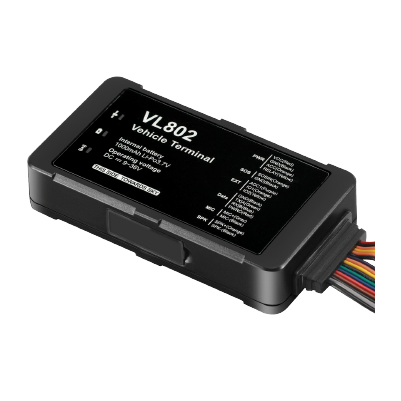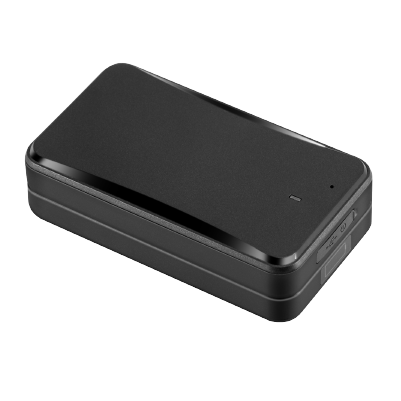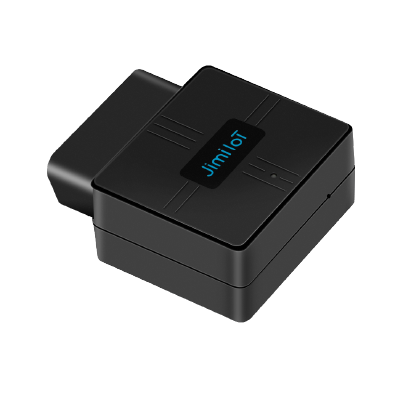GPS has become an essential part of our daily lives. From navigation to fleet management, GPS has revolutionized the way we travel and do business. There are different types of GPS devices available in the market, such as wired, portable, and OBD interface GPS. In this article, we’ll discuss the difference between these devices and which one is best suited for your needs.
Wired GPS Devices
Wired GPS devices are installed directly in the vehicle and are hardwired to the car’s battery. These devices are usually more robust and can provide a more stable connection as compared to portable GPS devices. Wired GPS devices are commonly used for fleet management, as they provide real-time tracking and monitoring of vehicles.

One of the primary advantages of wired GPS devices is that they are tamper-proof and cannot be easily removed or disabled. This makes them an ideal choice for businesses that want to maintain complete control over their fleet. Wired GPS devices are also more durable and can withstand harsh weather conditions, making them suitable for use in heavy-duty vehicles.
However, the installation of wired GPS devices can be time-consuming and may require professional help. Additionally, they may not be suitable for personal use, as they require permanent installation in the vehicle.
Wired GPS trackers offer several advantages:
- Reliable Connection: Because the tracker is connected directly to your vehicle’s power supply, there is no risk of battery failure or disconnection.
- Accurate Data: Wired GPS trackers tend to be more accurate than other types of GPS trackers since they can draw power directly from the vehicle and have a stronger signal.
- No Need for Recharging: Wired GPS trackers don’t require charging, which means you won’t need to worry about replacing batteries or keeping track of charging cycles.
Portable/Wireless GPS Devices
Portable GPS devices are small and lightweight, making them ideal for personal use. These devices can be easily carried around and can provide real-time tracking and navigation services. Portable GPS devices are also suitable for rental cars or vehicles thatare not owned by the user, as they can be easily removed and used in different vehicles.

The primary advantage of portable GPS devices is their ease of use and versatility. They can be used for navigation, tracking, and other GPS-related services. Portable GPS devices are also usually less expensive than wired GPS devices and do not require any professional installation.
However, portable GPS devices may not provide the same level of accuracy and stability as wired GPS devices. They may also have limited battery life and may require frequent charging. Additionally, portable GPS devices may not be tamper-proof and can be easily removed or stolen.
Here are some benefits of portable GPS trackers:
- Easy Installation: Portable GPS trackers are extremely easy to install, and you can do it yourself without any professional help.
- Flexibility: Since portable trackers are not tied to a specific vehicle, you can use them on different vehicles as needed.
- Cost-Effective: Portable GPS trackers tend to be less expensive than other types of GPS trackers since they do not require professional installation.
OBD Interface GPS Devices
OBD (On-Board Diagnostics) interface GPS devices are installed in the OBD port of the vehicle. The OBD port is usually located under the dashboard and is used to connect the vehicle to a diagnostic tool. OBD interface GPS devices can provide real-time tracking and monitoring of vehicles, as well as diagnostic information.

One of the primary advantages of OBD interface GPS devices is their ease of installation. They can be easily installed in the OBD port of the vehicle without the need for any professional help. OBD interface GPS devices are also usually less expensive than wired GPS devices and can provide real-time tracking and monitoring of vehicles.
However, OBD interface GPS devices may not be suitable for all vehicles, as some older vehicles may not have an OBD port. Additionally, OBD interface GPS devices may not be as tamper-proof as wired GPS devices and can be easily removed or damaged. They may also not provide the same level of accuracy and stability as wired GPS devices.
Here are some benefits of OBD interface GPS trackers:
- Easy Installation: OBD interface GPS trackers are also easy to install and can be done without professional help.
- Engine Performance Data: Since these devices are plugged into the OBD-II port, they can also provide real-time data on engine performance, including fuel economy, speed, and emissions.
- Discreet: Because OBD interface GPS trackers are tucked away under the dashboard, they are less visible than other types of trackers and may not attract unwanted attention.
Which GPS Device is Best Suited for Your Needs?
The type of GPS device that is best suited for your needs depends on several factors, such as the type of vehicle, the purpose of the device, and your budget. Here are a few things to consider when choosing a GPS device:
- Fleet management: If you own a fleet of vehicles and need to monitor and track them in real-time, then a wired GPS device may be the best option. Wired GPS devices can provide accurate and stable tracking and can ensure that your vehicles are being used efficiently.
- Personal use: If you need a GPS device for personal use, such as navigation or tracking your own vehicle, then a portable GPS device may be the best option. Portable GPS devices are easy to use and can provide real-time tracking and navigation services.
- Rental cars: If you need a GPS device for a rental car or a vehicle that you do not own, then a portable GPS device may be the best option. Portable GPS devices can be easily removed and used in different vehicles.
- Budget: The cost of the GPS device is also an important factor to consider. Wired GPS devices are usually more expensive than portable or OBD interface GPS devices. However, they may be a better long-term investment, as they are more durable and can provide better performance.
Conclusion
In conclusion, there are different types of GPS devices available in the market, each with its own advantages and disadvantages. Wired GPS devices are suitable for fleet management and heavy-duty vehicles, while portable GPS devices are more versatile and suitable for personal use. OBD interface GPS devices are easy to install.
When choosing a GPS device, it’s important to consider your specific needs and budget. Assessing the purpose of the device, the type of vehicle, and the level of accuracy required can help you make an informed decision. With the right GPS device, you can enjoy accurate tracking, navigation, and other GPS-related services, making your travels and business operations more efficient and productive.
 EN
EN ES
ES PT
PT TH
TH VN
VN JP
JP


